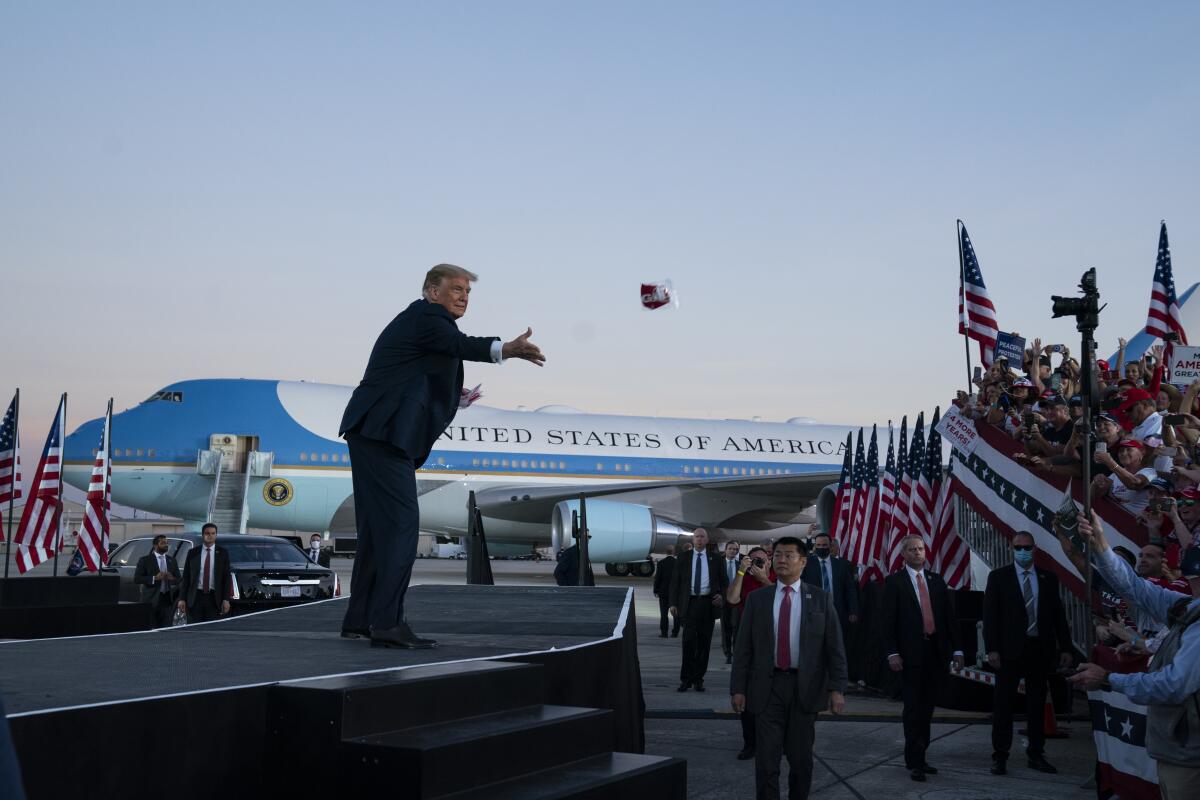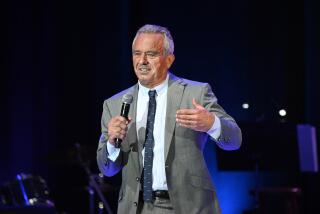The Great Barrington deception about COVID-19

President Trumpâs disdain for science, especially when it comes to protecting Americans from COVID-19, is well known. But this week, his administration is taking it a step further, falsely claiming that public health experts support his potentially deadly zeal for fully reopening the economy and society.
This is happening even as this weekâs Centers for Disease Control and Prevention data show that half the states are in the red danger zone for COVID-19 cases, with a fall and winter surge of infections expected.
Health workers in North Dakota already are searching high and low for intensive care beds. Because of the rapidly rising COVID-19 caseload there, only 29 such beds were available early this week.
North Dakota had the highest number of cases per capita on average over the last week, according to the CDCâs COVID-19 data tracker, and from the number of serious cases flooding hospitals, itâs clear that this isnât from increased testing.
Close on its heels is South Dakota, where Gov. Kristi Noem declared stay-at-home orders âuselessâ even as cases in her state spiked dramatically and public health experts said that medical personnel there were stretched too thin.
Both states have eschewed mandates to wear masks and other common-sense protective measures.
Yet the Trump administration claims that everything â the stores, the bars, the schools and the offices â can safely reopen and everyone can move about freely as long as the vulnerable are protected while America awaits an effective vaccine. And the White House claims to have the backing of the scientific community and that the World Health Organization, in a sudden turnaround, agrees with Trump.
None of these claims hold water.
For one thing, the âprotect only the vulnerableâ scenario doesnât make sense. This isnât just asking 5% or so of the nation to shelter almost completely indoors for an indefinite period. Close to half of American adults â well over 100 million people â fall into that âvulnerableâ category, whether itâs because theyâre older than 60 or have diabetes or asthma or other ailments on a long CDC list.
What are all those people supposed to do? Live in total lockdown? Right now, chances are that someone you meet at random â who comes to fix the water heater, say, or whoâs passing you in the supermarket â is uninfected. Things will be markedly different if the coronavirus is given free rein to spread in crowded stores, bars, workplaces and colleges. Nursing homes, already hit with high numbers of deaths, would find it hard to find healthy people to hire. And itâs difficult to imagine the economy thriving if itâs too dangerous for half of American adults to venture outdoors or into a store.
The U.S. medical system also wouldnât be able to keep up under this scenario. Look at the two Dakotas. Not to mention that the nation owes it to nurses, doctors and other medical workers to keep them as safe as possible.
This is not a scenario that âthe scientific communityâ supports, despite the claims of a president who has repeatedly rejected and attempted to squash COVID-19 science. Itâs a viewpoint espoused by three infectious-disease experts who wrote a document called the Great Barrington Declaration and who tout herd immunity, the idea that if enough people catch the disease, theyâd be immune and it would no longer be widely transmitted. Yet the newest study on the subject shows that a Nevada man was re-infected with the coronavirus and got sicker the second time around. Millions of American lives would be at risk.
About 3% of doctors and public health scientists signed on to the document; it was widely criticized by others. And many of the signatures on it were later found to be fakes or not those of scientists at all.
Nor has the WHO adopted this advice. The organization has said for many months that lockdowns â meaning people are ordered to stay in their houses for everything but the most essential errands and some outdoor exercise â should not be the primary way of keeping infection rates lowered over the long haul, unless the numbers threatened to overwhelm hospitals.
The Trump administration is pretending that the choice is binary: an on-off switch, lockdown versus anything goes. This nation is not in lockdown. Depending on the state, people are out and about, eating outdoors in restaurants and in most places able to get a haircut or browse in a bookstore. Not everything is open or packed with people, and schools are approaching this gradually for the most part. This is an effort to prevent lockdowns, not an embrace of them.
Administration officials point to the likelihood that lockdowns prevented people with other diseases from getting the medical care they needed. That was true â in the spring, when the nation was in lockdown. These days, people are able to get their medical and dental work done in safe settings. That wonât be true if the disease runs rampant.
The message the WHO and most scientists are trying to convey is that itâs vital to employ various methods to keep rates of COVID-19 down until there is a vaccine or more effective treatments. These include masks, physical distancing, robust testing, and contact tracing â elements the president has mocked, personally ignored and failed to implement in anything close to whatâs necessary. The science is not with Trump and some kind of coronavirus free-for-all.
More to Read
A cure for the common opinion
Get thought-provoking perspectives with our weekly newsletter.
You may occasionally receive promotional content from the Los Angeles Times.










